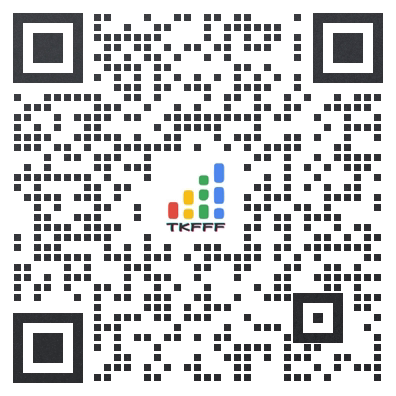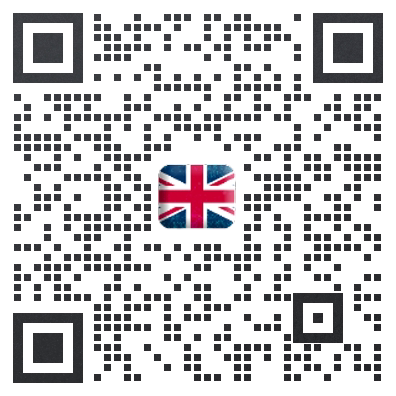TikTok is under intense scrutiny when it comes to U.S. politics, but candidates can’t afford to stay away
Maria Comstock is preparing for this November’s U.S. presidential election in the best way she knows how. As voting day draws nearer, she plans to add election content to her TikTok channel, where she has amassed 1.7 million followers by posting brief interviews with retired spies, including her father. Typically, she asks about blackmail, or the likelihood of a Third World War, or life undercover in Moscow.
In the coming months, though, Ms. Comstock, 22, plans to ask them questions of a different nature: about the importance of staying informed, and the need to vote.
“Influencers can have that ability to sway minds – maybe even elections,” she said.
As the vast spending machine of U.S. politics seeks votes in the lead-up to November, perhaps no media platform occupies a more fraught place than TikTok, the social media app that the U.S. has pledged to ban if its Beijing-based owner, ByteDance, doesn’t sell it.
Even so, the Biden administration has made TikTok a key part of its presidential election campaign strategy. And Donald Trump, who also tried to force the sale of the app as president, launched his own TikTok account on Sunday, amassing nearly five million followers in his first 24 hours on the platform.
Critics have called TikTok a potential vector for foreign influence, citing the potential for the Communist Party of China to exert influence on its parent company. But in U.S. politics it has become indispensable.
Past elections have been won and lost on platforms such as YouTube or Facebook. But in 2024, “a great deal of the battlefield is on TikTok, in a way it wasn’t before,” said Mike Nellis, the founder of digital marketing agency Authentic. Over the course of his career, he says he has helped to bring in more than US$1-billion in Democratic donations.
“As much as the national security risk of TikTok is legitimate and real,” he said, “you still have to meet people where they are.”
Mr. Nellis recently participated in a summit in Washington, where he recommended that Democratic campaigns build a presence on TikTok, an app whose reach extends far beyond the youth that first made it popular. With 170 million users in the U.S., TikTok now claims nearly a third of the time Americans spend on all social media, according to statistics gathered by market intelligence group Apptopia.
Increasingly, those users are swiping through political content, which has grown in importance as TikTok has joined the core of American discourse.
“Part of even being an influencer today is having a political voice and making your political stances known,” said Ioana Literat, an associate professor of communication at Columbia University who has studied TikTok’s role in shaping political dialogue.
“So that kind of explicit political voice has been baked into expression on the platform.”
TikTok has become a critical public square for both parties, a place issues central to the election campaign are being debated, such as the nature of Mr. Biden’s support for Israel in its war on Gaza.
“If you’re Biden’s team, you really want to get the positive message out, to neutralize those concerns,” said Anthony Shop, who is co-founder of Washington-based digital services firm Social Driver and chair of the National Digital Roundtable, an industry group. “If you’re not on Biden’s team, you want to stoke the flames of opposition against Biden.”
Meanwhile, members of both parties are still warning that TikTok constitutes a menace.
Senators Mark Warner, a Democrat, and Marco Rubio, a Republican, said in a joint statement in March that Tiktok is “a platform with enormous power to influence and divide Americans, whose parent company ByteDance remains legally required to do the bidding of the Chinese Communist Party.”
In April, Mr. Biden signed a law that would ban TikTok if it is not sold. TikTok and ByteDance have called the ban unconstitutional and mounted a legal challenge in federal court. But TikTok is already banned from official devices used by the U.S. government and the governments of nearly 40 states.
At the same time, Mr. Biden’s campaign has made near-daily posts to TikTok, including videos that poke fun at Mr. Trump, excerpt snappy lines from speeches and draw attention to celebrity statements of support. Mr. Trump’s first TikTok appearance showed him at a UFC fight. “That was a good walk-on, right?” he says at the end of the short inaugural clip, which is set to a thunderous metal beat.
The app “has changed the landscape in which other online media is consumed,” said Tyler Brown, a former director of digital strategy at the Republican National Committee.
“It has really elevated the meme-ification that you’re seeing spread onto other channels. And it’s leading to this universe of influencers that more and more campaigns are looking to lean on to get their message out.”
Mr. Biden’s campaign has staff dedicated to working with social media influencers. It sometimes offers them compensation in the form of access. “You can meet the senator of your state. You can meet the press person at the White House,” said Ms. Comstock, who studied politics in university, has worked on political campaigns and has friends on the White House team. Politics on TikTok, she said, has created an unusual intermingling of lobbying and social media marketing.
For companies that have built their businesses promoting commercial interests on TikTok, the sudden political interest in the platform has created new problems. At one such company, Clicks Talent, workers can, with the click of a button, locate dozens of people willing to promote beauty content. But “there’s no filter in our database of influencers who are pro-right or pro-left, pro-life or pro-guns,” said AB Lieberman, the company’s founder.
As a result, Clicks Talent, which works with 5,000 influencers that have an aggregate audience of 1.5 billion followers, charges more for political influence than it does for commercial work. “Political content is extremely expensive, and the reason for that is because it’s a pain,” he said.
TikTok says such arrangements violate its terms. Since 2019, it has prohibited political advertising, “including both paid ads on the platform and creators being paid directly to make branded content,” the company said in a statement.
But enforcement is not rigorous, influencers, political strategists and advertising representatives told The Globe and Mail. “They’re very, very loose on it,” Mr. Lieberman said.
For many political campaigns, however, it may not make sense to use TikTok at all. Outside of the few marquee races that dominate national headlines, many state and county-level political challengers have at most two people on their campaign staff – hardly enough to create the kind of regular video content that thrives on TikTok.
“Unless you’re native to it or your audience is particularly young, like you’re in a college town or something, it’s still hard to invest in,” said Jessica Alter, co-founder of Tech For Campaigns, a volunteer-driven group that expects to help more than 150 lesser-known Democratic contenders with digital communications this year.
Political contests are bounded by the geographic lines of electoral districts. But TikTok offers little ability to direct messages to certain areas. Its algorithm excels at delivering people what they want, meaning any political posts are less likely to reach those who aren’t already supportive of a particular policy or candidate. For influencers, meanwhile, there is danger in angering their audiences with political messages.
“We don’t want to hit the wrong nerve and lose a million followers,” Ms. Comstock said.
She has polled her own followers and discovered that she enjoys a rare perch, with viewers evenly split between people on the political right and left.
That’s part of the reason she intends to keep her message simple, by encouraging people who might not otherwise vote to get out and mark ballots.
Even that, she said, is essentially partisan. “Because if everyone voted, a Republican would never be elected again.”
文章来源:theglobeandmail


TKFFF公众号
扫码关注领【TK运营地图】







 闽公网安备35021102002035号
闽公网安备35021102002035号